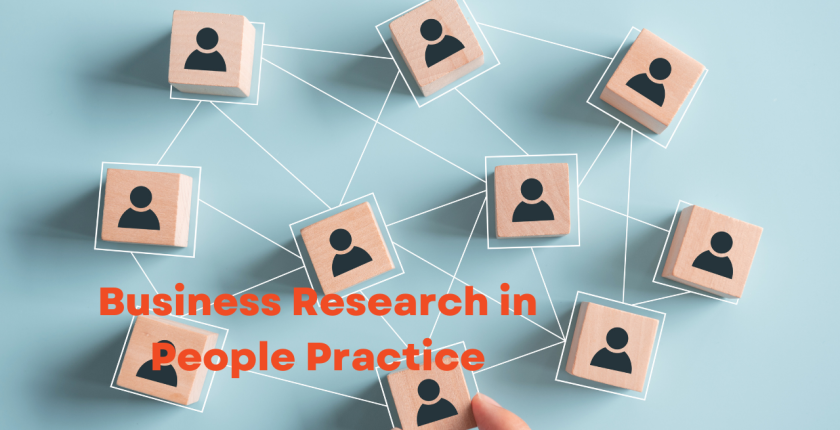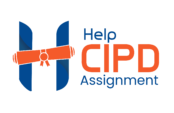7CO04 Business Research in People Practice
- January 10, 2022
- Posted by: admin
- Category: CIPD Level 7

Business research in people practice is mandatory for learners in Level 7 of the Advanced Diploma in Strategic Learning and Development. This unit requires learners to define and identify a research issue and conduct the research in practice. They use evidence to construct a research report, develop the conclusion, and formulate recommendations to manage the people practices issues faced by the organisation. The research process ends with developing a critical reflection by the students.
Learning objectives
For this unit, the following learning outcomes are required for completion of the assessment:
- Learners believe that research practices should be used to add value to the organisation.
- Students identify research methods to collect research data and justify the best method for specific research in people practice.
- Students analyse research data and develop insights to help people and businesses.
- Learners conclude and make recommendations for managing the future of the business and its people.
Learning outcome 1
The business research project
First, learners must select a research topic within any of the business’ people practice areas. Change in the organisation must be the primary goal of the topic and should be aimed entirely at adding value to people and the general business environment. During the selection of research topics, learners should choose topics such as promoting employee engagement, retaining staff, improving employee well-being, and improving employee performance.
After identifying a research topic, students should develop their research questions and analyse evidence from journals, books, organisational reports, and government reports. An analysis is vital in restructuring the research literature review, where learners evaluate the different sources of evidence needed to understand the study issue.
Developing questions to address the research question
The learners must develop questions that focus on the research topic to understand the research agenda and develop research questions accordingly. These questions assist learners in determining research outcomes. In addition, learners must develop transparent and clear questions for the research audiences. These questions will help learners develop effective results in analysing research results.
Learning outcome 2
Research methodology
The methodology involves gathering data that researchers need to complete the research. Students should distinguish between the different types of data they may need to use in their research projects. To complete the research they intend to complete, and they must understand the benefits of the different research methods and justify the best research method. Learners should be able to differentiate between primary and secondary sources of information, qualitative and quantitative research, and the risks and benefits associated with various research methods. In addition, they should know how to distinguish between case study research, survey research, focus group discussions, and observations during the study process.
Learners should be aware of the ethical issues they should follow when collecting data from respondents and how to relate to the research environment. The confidentiality of interviewees or respondents whose data is analysed by researchers to produce research results is a critical issue to consider. Learners need to be informed about how the data collected from respondents will be used and stored. In this manner, the research becomes credible and ethical.
Learning outcome 3
Analysing data and making decisions
During the data analysis stage of a research project, researchers need to decide which research methods to use based on the associated costs and opportunities each method provides to complete the research successfully. Therefore, learners need to understand the data collection and analysis approaches. In addition, researchers need to clarify issues that enhance the practical evaluation of research topics as they analyse the evidence. Therefore, learners should become familiar with the statistical approaches to analysing data, reviewing content, and learning the coding skills necessary to analyse data. However, they differ depending on the research method chosen by the researcher for the research that they intend to conduct. As a result of the research, the findings obtained are presented to provide evidence relating to the research. When analysing and presenting research results, students should ensure that they do so ethically. Ethics prevent bias on the part of the researcher.
Learning outcome 4
Summary and recommendations
After effectively analysing the data collected from respondents, researchers develop conclusions. By integrating the findings, the findings are bringing out concepts, themes, and patterns relevant to the topic that the researcher was investigating. At this level, learners should be taught how to conclude concisely and transparently while developing the research report appropriately. After the researchers have concluded and identified potential issues that could have caused the issue to be investigated, they develop people- and business-focused recommendations, depending on the research topic. You should make sure the recommendations are persuasive so that audiences will take action to implement them. Therefore, learners should understand how they are expected to communicate the conclusions to the research audiences. Developing recommendations should also take into consideration the implementation costs. The barriers may prevent them from being implemented, so it is crucial to be familiar with the mechanisms that can be used to overcome them.
Critical reflection
When the research is completed, learners are encouraged to reflect on the lessons they have learned since the beginning of the project. During the development process, they determine strengths and weaknesses, and in the process, they identify areas for improvement. As a result, the learners will gain insight and confidence in creating and supporting organisational change in future research.
Wrap Up
This unit helps learners understand how they can develop innovative research ideas on how to change practices within the organisation. In this course, students learn about selecting a research topic, developing research questions, developing a research methodology, analysing research data, and developing conclusions and recommendations intended to address the research problem.


